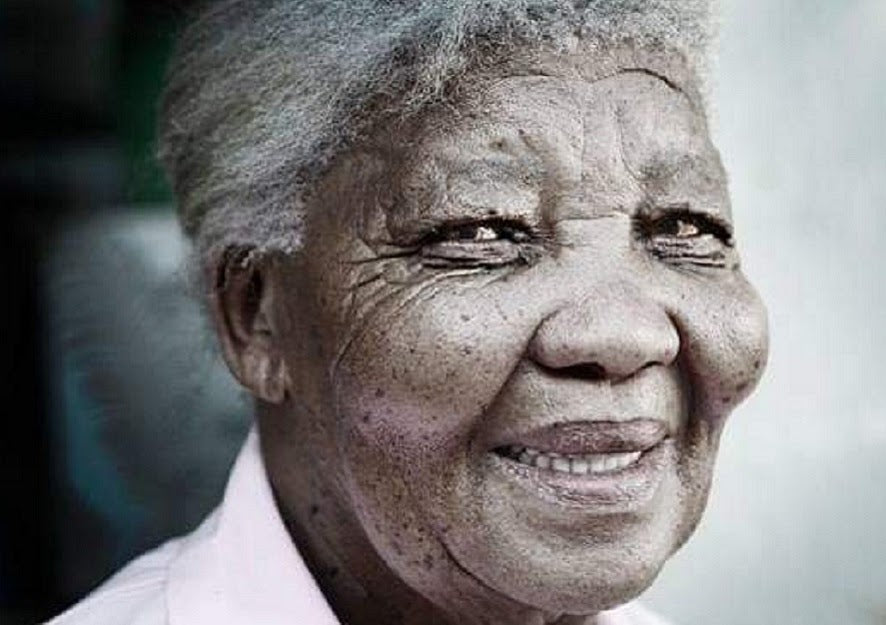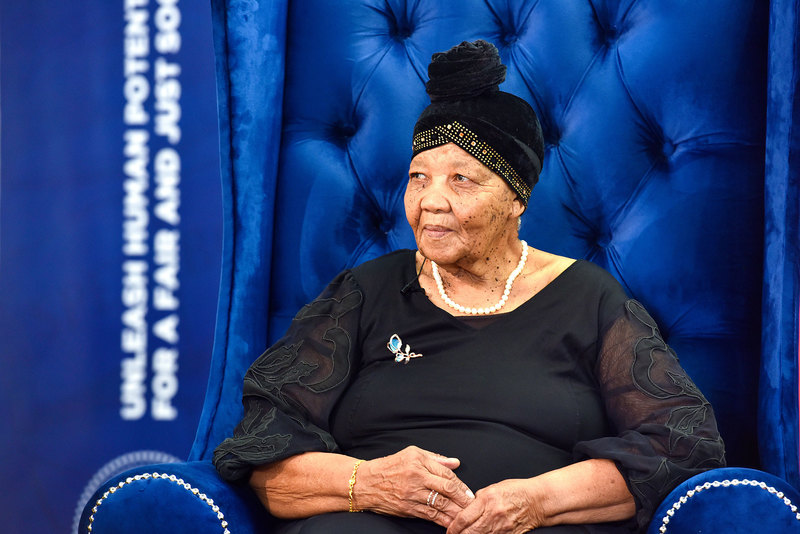The N|uu language, a linguistic rarity from the indigenous people of South Africa, had teetered on the brink of extinction for decades, the victim of colonial oppression and the country’s apartheid policies. However, the remarkable story of 91-year-old Katrina Esau, the last known speaker of this ancient tongue, serves as a testament to the power of human resilience and the determination to preserve cultural heritage.
As a young girl, Esau was harshly discouraged from using her native N|uu, and instead forced to speak Afrikaans – the language of the ruling white minority. But rather than allowing this vital part of her cultural identity to be silenced forever, Esau spent much of her life working tirelessly to revive and preserve the N|uu language.
Determined to ensure the survival of N|uu, the nonagenarian Esau founded a school in her hometown of Upington, with the goal of teaching the language to a new generation. Through these remarkable efforts, Esau has played a crucial role in safeguarding the future of N|uu, ensuring it will not fade into obscurity.

Despite having two living sisters, Esau has no one to speak her language with, aside from the family members and children she had taught a few phrases. “I miss speaking to someone,” she said. “It doesn’t feel good. You talk, you walk, you know … you miss someone who can just sit with you and speak N|uu with you.”
Esau’s granddaughter, language activist Claudia Snyman, has joined the campaign to bring back N|uu. They had worked together to open a school to teach the language, but it was vandalized during the pandemic, which greatly hurt their progress. “The language isn’t where it’s supposed to be yet. If Ouma [grandmother] dies, then everything dies,” said Snyman in 2023. Her dream is to protect her grandmother’s legacy. “I’ll do anything in my power to help her to prevent this language from dying.”
N|uu is a click language dating back to the ǂKhomani people from the southern Kalahari who lived in Southern Africa before the arrival of European colonizers. They are a part of the San people, one of the earliest known hunter-gatherers in that area. During the British occupation in the 19th century, the people were stripped of their ethnic and cultural identity, including their language. In fact, people were mocked, beaten, and even murdered for using N|uu, endangering the language and almost erasing it completely.
N|uu is called a click language because of its unique click sounds. In fact, one primary click exists in very few languages. Linguists call the sound a “bilabial plosive” or in layman’s terms: “a kiss click”. Because this tongue was primarily spoken and not written, there is little documentation, making it difficult to track it historically and discover more about it.

Despite the challenges, Esau and her granddaughter Snyman remain steadfast in their mission to protect the N|uu language and ensure its survival. As Lorato Mokwena, a linguist from South Africa’s University of the Western Cape, stated, “It’s important that while Ouma Katrina is around, that we do the best that we can to preserve the language and to document it.”
Around the 1990s, a glimmer of hope emerged as about 20 people stepped forward, all claiming to be N|uu speakers. This ancient language, native to the Kalahari Desert in South Africa, had teetered on the brink of extinction for decades. However, by December 2021, the last known speaker, Ouma Katrina, had passed away, leaving only her granddaughter Claudia with a tenuous grasp of the language.
Yet, Ouma Katrina’s legacy lived on. For the past 20 years, she had worked tirelessly with Dr. Kerry Jones, a linguist and Director of African Tongue, and other members of her community to create a digital N|uu dictionary. Although Ouma Katrina had never learned to read, her determination to preserve her language was unwavering. Together, they also authored a N|uu children’s book titled “Qhoi n|a Tijho” (Tortoise and Ostrich), ensuring that the language’s rich storytelling tradition would not be lost.
As of May 2024, Ouma Katrina’s granddaughter, Claudia, has become the central educator of a N|uu learning program at a local school. “Children are learning to greet, they are learning to sing songs, they are learning names for animals and plants,” said Dr. Jones. “They’re not going to be fluent speakers and be fully monolingual in N|uu. That’s not reality, but they will be able to greet, they will be able to sing songs, they will be able to understand a basic children’s story.”
In March 2023, Ouma Katrina’s tireless efforts were recognized with an honorary doctorate from the University of Cape Town, an award that celebrated her unwavering dedication to preserving her language. “Who would have thought that a woman who never saw the inside of a school, who looked after sheep and cleaned kitchens on her hands and knees, would be here today?” said Ouma Katrina during the ceremony that unveiled the completed N|uu dictionary, both in hardcover and digital formats.

Unfortunately, languages die every year, and bits of history and culture die with them. Although this slow extinction is inevitable in the modern world, it depletes society of a certain richness. After all, it’s not just a way of speaking; language reflects how people think, feel, express themselves, and see the world around them. It’s a core part of identity.
“There are these codes that we use to communicate and we label these codes ‘languages.’ Your experience with one code or another code is the structure that creates your reality. That is fascinating,” Dr. Jones said. “Because of globalization, we are losing access to these codes. That’s such a loss. It’s the same as saying ‘Well, why give a sh*t about animals and plants that are going extinct?’ It’s because it’s part of a bigger network – it’s important.”
The story of the last N|uu speaker is a bittersweet one, a testament to the fragility of linguistic diversity in the face of globalization. Yet, it is also a story of resilience, determination, and the power of a single individual to preserve a piece of cultural heritage. Ouma Katrina’s legacy will live on through the digital dictionary, the children’s book, and the efforts of her granddaughter and the broader community to keep the N|uu language alive. As we grapple with the loss of endangered languages worldwide, we would do well to heed the lessons of this remarkable woman and the language she fought to preserve.


